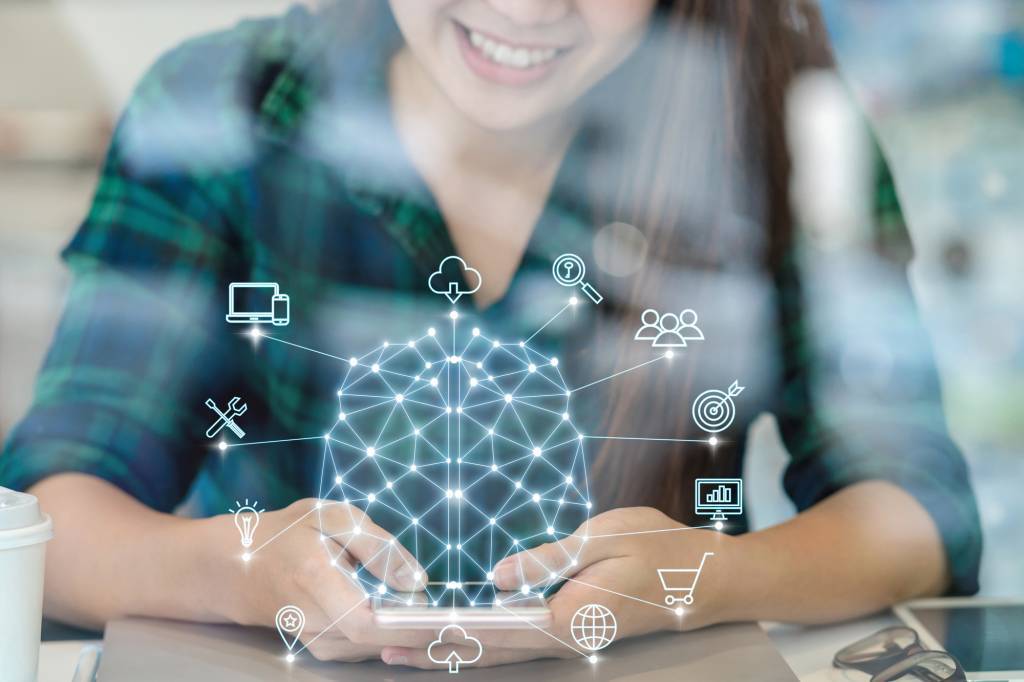Thanks to the growth of the internet, the rate at which new information is being released is growing exponentially.
Accelerating big data between machines.
We are in an age when communication is not just between human beings. Machines are now the go-to for connections between the people to people space — as well as machine to machine delivery.
IoT and AI
Technological advancements in the IoT and AI have brought us Machine to Machine communication where interconnected devices can exchange data and make faster, better decisions based on larger amount of information than were ever available before.
Think of a smart vacuum cleaner that knows every corner of your house and can operate itself intelligently. The device even drives itself to the docking station for recharging when its battery is low.
Now imagine that the vacuum cleaner can communicate with smart doors in your home to allow it access and lock them after it has finished vacuuming each room. It also knows when its brush head is getting worn out and can order a new one for itself from the best seller it can find online.
All this has become possible through AI and IoT.
Now, with blockchain joining forces to secure these types of devices, there is no doubt that we are on a highway to a world driven by smart technology.
What Does This Mean for Big Data?
Smart devices are a vital data source, and therefore their proliferation will automatically lead to the growth of big data.
According to IBM Big Data & Analytics Hub, a robust growth of IoT can only mean a deluge of new data in the next few years. A new study by the global research firm, software.org, estimates that there will be over 50 billion interconnected devices within IoT by 2020.
Blockchain is beginning to merge with IoT.
But what is even more amazing is that blockchain is merging with IoT. Data from these devices is guaranteed to be secure and highly accurate. This is because the immutable nature of the technology makes it impossible to manipulate or change data presented by IoT devices.
It is not very often that you can find a highly reputable big data source who’s benefits to the general population keep growing. This is attracting more usage and consequently boosting data growth.
With blockchain security — IoT as a data source becomes self-driving — its benefits far outweigh any flaws. Without this progressive success — the rate of adoption is likely to skyrocket with time as well as the quantity of data it generates.
The power of blockchain-based IoT in big data may sound like a faraway dream, but solutions that marry the two are already in place.
Blockchain and IoT Combinations
One such solution is Steamr, a blockchain based project by the Swiss-based Steamr Network AG using IoT for big data. Steamr’s primary objective is to enable the ordinary person to trade data from their IoT devices with each other and with manufacturers.
Think: Sharing information.
Think of a smart car that can share traffic data with vehicles on other routes. The cars software is notified of the relevant authorities when an accident occurs. These vehicles will also be warned in case of road repairs that can slow the timeframe. The car can also share durability data with manufacturers to help them plan for new brands.
Ecosystems can be built where it is possible to share such data and get rewarded in the process. For instance, through the project, smart car owners can also buy relevant data such as traffic updates.
Owners and user may be look for best pricing charging points or any other valuable information. The purchased data automatically uploads into the autonomous car systems and initiates the required actions.
A project known as IOTW is AnApp Technology. This project is building an ecosystem where data from IoT devices can be pooled and sold with the consent of users to interested parties.
Rewarding your customers for their data.
When consumers get rewarded for the data they provide you — companies can use this data in endless ways. This information can be used for planning smart cities, updating appliances and can help caters to better fill customer needs.
Appliance electricity usage information or any other relevant data is worth collecting. They want to know about IoT appliances and devices.
The project of collecting data is for both consumers and industrial IoT companies. Collected data will be beneficial to manufacturers as well as wholesale and retail businesses.
As blockchain is becoming part of IoT — there is a high chance that the resulting big data will lead to more innovative IoT solutions. This will in turn generate more high-quality data. This will lead to better decision making in all aspects of life, creating more ease and accessibility for all.


















